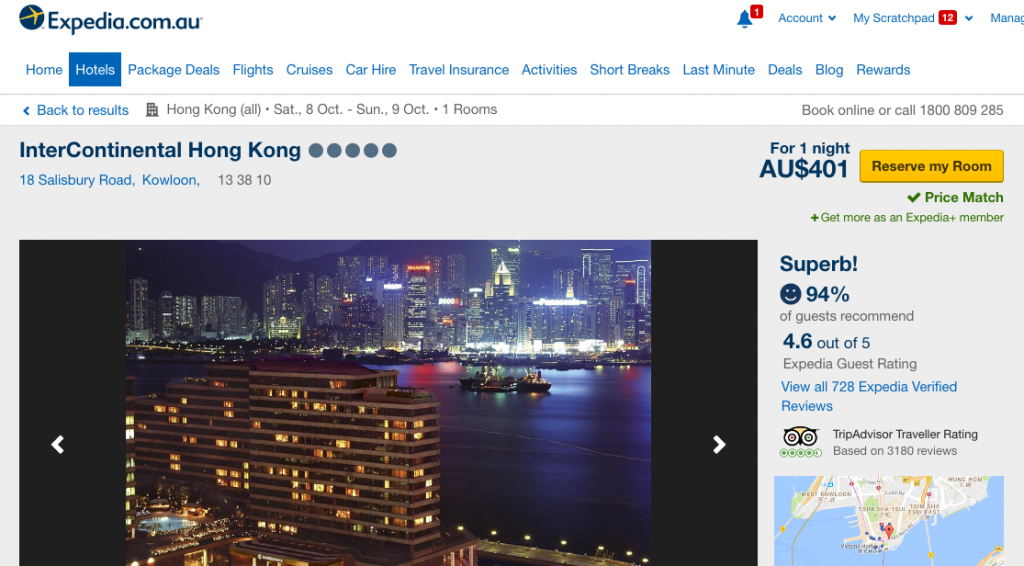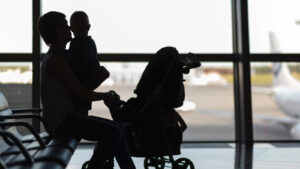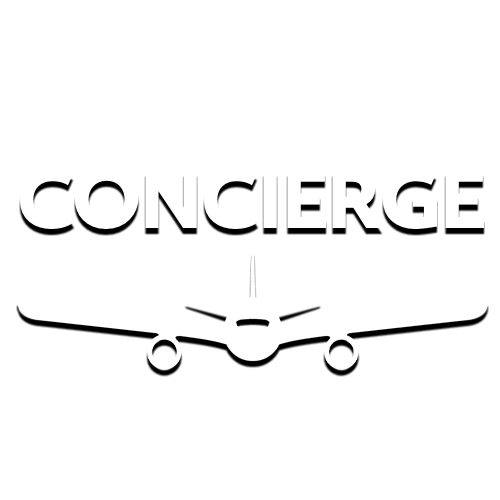Major hotels have been waging a war against Online Travel Agents (OTAs) for years – hotels couldn’t publish lower rates than what is listed on the OTAs own platform. This is why room prices on OTAs and hotel sites have been similar for so long.
In most cases you could get more value from booking directly through the hotel as there would be loyalty points, elite status and often better rooms available that otherwise you wouldn’t be able to access if booked through an OTA, as hotels positively discriminate towards their own booking channel.
In this article, originally published on Medium and edited for Point Hacks readers here, loyalty program expert Mark Ross-Smith explores a range of options for trying to secure the lowest hotel rate when making your booking.
Instead of looking for new revenue streams, major hotel chains thought it would be a great idea to go on the offensive and attack the very distribution channel – online travel agents – they rely on for new reservations.
Over the past year, the hotel industry has been fighting back to have these agreements with OTAs overturned and even outlawed. France, Germany, the Netherlands and a number of other countries have banned the practice, and both hotels and OTAs are free to set their own market rates.
What does this mean for hotels?
History shows the hotel industry has a poor reputation on combatting the growth of OTA bookings, so why would the hotel-driven anti-rate parity movement be any different?
How have hotels fought against rate parity over the years?
- RoomKey was launched in 2013 as joint venture between Marriott, Choice Hotels, Hilton, Hyatt, IHG and Wydham Hotels and never took off. With a lackluster design, no USP, and most of the traffic coming from pop-unders, the result is hardly surprising it came crashing down in a heap.
- In 2015, Accor transformed their own website into a pseudo OTA in an effort to bring more direct traffic and sell non-Accor hotel inventory. Essentially an attempt to create their own RoomKey, with Accor properties at the top of results, of course.
- If a guest books through a ‘non-approved channel’ (a.k.a. through an OTA), and is an elite status member with the chain; the guest will not receive any benefit they otherwise would have received by booking direct. See How to alienate high-value guests).
- Almost every major chain offers free wifi, but only when you book direct (and become a loyalty program member), instantly turning off every guest who books through an OTA.
- Hilton and Marriott are now the latest chains to offer up to 25% discount for already loyal members to make reservations directly instead of via OTAs. Ignoring the revenue losses this creates by giving discounts to millions of already loyal customers (thus lowering RevPAR and margins from high value guests), this attempt to ‘switch’ customers from OTAs to direct booking channels is causing OTAs to fight back.
Expedia now penalises hotels which advertise such deals. This means hotels will see a drop in Expedia exposure and ultimately loss of bookings which could easily have deeper negative impact than any perceived gains by the increased direct bookings.
Let me explain: when direct bookings are discounted, the hotel owner pays for the discount. In addition to this hit, there is the extra cost for providing free wifi (most hotels are not set up for 100% of occupants to be on wifi at any one time), thus deteriorating the experience for everyone and rendering the benefit useless.
Also taking a hit is the cost for the hotel to provide loyalty program points for every guest where they otherwise would not have incurred this cost. High-value elite guests who were already loyalty members are cashing in on the discount too, and thus any perceived increase in guest loyalty is being instantly eroded by the double-digit discounts offered at a chain level.
With price parity and member discounts in mind, how can OTAs offer better rates?
Three major factors are in play when it comes to the best rate:
- David Feldman mentions in a recent publication that Hilton tacks on a 1.5% credit card surcharge for Australian reservations, whereas OTAs do not. This effectively means that if an OTA and hilton.com have the same price point, the OTA will be 1.5% less as no surcharge will be applicable so long as you don’t pay at the hotel.
- Utilise last-minute booking apps like Hotel Tonight and HotelQuickly. Often, hotels can be desperate to take in any revenue from a room and will drop the rates for last-minute reservations.
- Leverage both hotel and OTA ‘Best Rate Guarantees’ (known as BRGs).
How do BRGs work?
The fundamental principles is if you find a lower price on a competition site, the hotel (or OTA) will match the lower rate and give you something extra for the effort to secure your business.
While BRGs were first introduced as a marketing perception tool, they have evolved into their own micro businesses. Each time you as a guest submit a BRG to a hotel, keep in mind the hotel already has market intelligence tools at hand to know what rates are. You are submitting the claim at a chain level (not to the specific hotel), and with rate parity still in effect, your potential claim acts as a flag to the chain that the hotel revenue managers may not be operating in alignment with rate parity agreements they originally agreed with.
If the room rate you found on a competing website is lower, the chain will ‘fine’ the hotel a nominal fee (thus a revenue generator for the hotel chain), and force the hotel to honour the lower rate and your extra sweetener credit – in some cases this can equate to a free night like with IHG properties.
With 1000s of BRG claims daily to hotels, guests are fundamentally acting as a micro workforce for the major hotel chains.
To really get the most out of BRG claims and always secure the lowest hotel rate, you need to understand which booking channels offer the most attractive guarantees as not all are created equally.
You ideally want to find the top sites with BRG which will always include the hotel directly – Expedia and Orbitz. Armed with pricing from these channels, you can calculate your own view of which has the lowest most effective pricing.
Here’s an example for a Hilton night I researched:
| Booking Method | Lowest Public Rate | BRG Policy | Lowest Effective Cost |
|---|---|---|---|
| Hilton - Direct | $289 | Price Match + $50 room credit | $289 less value of points + status earned |
| Expedia | $319 | Price Match + $50 off next booking | $289 |
| Hotels.com | $319 | Price Match | $289 |
| Orbitz | $289 | Price Match + additional 10% discount | $289 |
Effectively, we look at what the price would be after a successful BRG match with a competing site. In this case, the direct Hilton booking appears to be the cheapest (made slightly cheaper with member-only rates), but when booked through Expedia under a BRG claim, you get the same room plus $50 off your next booking.
Thus, Expedia is the cheapest option, despite appearing to cost more at first glance.
StayAngel, a big data intelligence solution for hotels which closed earlier in 2016, mentioned that 8.5% of directly made reservations parsed through their system were available at a lower price through OTAs.
This loosely translates into direct bookings being cheaper 91.5% of the time, but if we factor in the BRG that OTAs can offer, booking through an OTA is the cheaper option 100% of the time.
What this means for you: how to get the lowest hotel rates
- Use Best Rate Guarantees: keeping in mind the method mentioned to ensure the lowest rate
- Remember there are surcharges when paying at the hotel: In Australia, hotel chains often add a 1.5% credit card surchage to direct bookings, whereas OTAs tend not to
- Wait: The best deals are often last-minute and you can save a bunch by using apps like HotelQuickly
- Look at points-earning OTAs: If the direct booking and OTA rates are identical, consider Agoda, which gives bonus frequent flyer points for the same price
- Use cards that maximise the return on your hotel spend: For example, the two following cards offer valuable hotel benefits or bonus points on travel spend:
This content contains affiliate links from which Point Hacks may earn commissions from transactions generated from new customers, bookings and general enquiries. Find out more here.






The commission structures stated above are exaggerated – I don’t know of one last minute booking app that charges hotels more than 15% commission – which is considerably less than certain OTAs and other Channels
Last minute bookings apps are just that – they aim to sell distressed inventory that the hotel was not capable of selling themselves or through traditional channels. How is that a bad thing ? They also offer at least as much control as traditional or online channels … in many cases more!
The research from Hotel Tonight that you mention does indeed conclude that a high percentage of last minute bookers are new customers that would not have stayed in the hotel that night otherwise – Hotel Tonight is an intermediary and offers a choice of 3-4 hotels per city to customers…. How would a hotels own last minute app offer this choice and attract new customers ?
Oh dang, didn’t know about 6x points on mobile app.
Also I hate filling out every individual hotel form and credit card details etc, such a pain and time waster.
I also earn 6 points per $1 when booked through the Expedia mobile app. 3,200 points is about $25 or ($50 at VIP hotels), so it’s not too bad.
But there are some other points I don’t agree with (I used to work in hotel reservations and have a degree in hotel management) …
“when direct bookings are discounted, the hotel owner pays for the discount” – does this take into account the commission the hotel would have paid the OTA?
“David Feldman mentions in a recent publication that Hilton tacks on a 1.5% credit card surcharge for Australian reservations, whereas OTAs do not …” OTAs do charge booking fees, maybe not Expedia but others. See https://www.expedia.com.au/p/why-expedia this might change though with the credit card surcharge law that just came into place.
Even if they don’t get you with the booking fee, they will get you fees for any changes or cancellations.
One of the major benefits of booking direct with a hotel is the ability to make changes. Unless it’s a pre-paid / advance rate you can generally cancel up to 24 hours without any penalty, but with an OTA this may incur a penalty or be non-refundable. I used to work in a hotel and it was a regular occurrence to have exhausted guests who had made an error in the booking (usually customers from US who forgot to factor in the +1 day). Had they booked direct we would be able to help them straight away, but because they booked via a third party they would have to try and contact the OTA to make changes.
Also, if a hotel is overbooked, the OTA bookings are the first to go but the least likely to receive an upgrade or any special treatment.
My suggestion – If you want to save a few dollars, book via an OTA but I recommend asking the hotel to price match. Most hotels will honour the price match as they will save the OTA commission and you will avoid the hefty fees / issues if you need to cancel or amend the booking. If you’re celebrating a special occasion you will also be better taken care if you book directly.
The same applies if you have a specific request (ie if you need adjoining rooms as you’re traveling with children). Booking via an OTA and this is a request that is not guaranteed and will most likely be overlooked due to the way the bookings are generated in the system. Book direct with the hotel and this request can be guaranteed.
http://www.accc.gov.au/media-release/expedia-and-bookingcom-agree-to-reinvigorate-price-competition-by-amending-contracts-with-australian-hotels
We have holidays plans in December and I’ve done a few price promises oath Expedia and am having for once few difficulties doing it. When comparing price with Expedia and Agoda, Expedia refuses the price promise ad agoda term are free cancellation until a week before your stay. Where as Expedia is 2 days before your actual stay. Had to get ticket escalated with manager a few times as I threatened (I’m a gold member), and only got the discount after. YMMV.